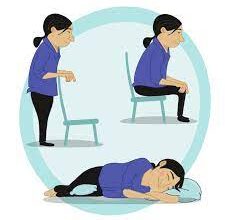Winter Woes: Why do children have respiratory infections at this time of year? The physician clarifies
Although winter is frequently linked to joyous festivities, it also brings with it an increase in infectious illnesses.

The common cold, the flu, and acute bronchitis in children are among the respiratory ailments that are more prevalent during the colder months. Furthermore, pneumonia may strike children as well. To enhance children’s quality of life, prompt treatment is imperative.
“A wide range of respiratory ailments may affect youngsters throughout the winter months. A major position is held by bronchiolitis. This condition, which mostly affects young children, is brought on by the respiratory syncytial virus (RSV) and involves inflammation of the bronchioles, the smallest airways in the lungs. Sneeze or cough droplets may transmit this virus, which causes symptoms including fever, wheezing, and runny nose. Adenovirus and influenza viruses are also causing instances that we are seeing. Pneumonia, an infection that causes one or both lung air sacs to become inflamed with fluid or pus and causes severe breathing difficulties, is another significant respiratory disease associated with the winter months that affects children. Although the cause of this illness may be bacteria, viruses, or fungi, wintertime indoor activities might promote its transmission among families, making pneumonia in children more severe than in adults. According to Dr. Tushar Parikh, Senior Consultant Pediatrician and Neonatologist at Motherhood Hospitals Pune, breathing may become challenging during asthmatic flare-ups brought on by cold weather.
A painful throat, a runny or stuffy nose, and a hoarse voice are some other typical symptoms, according to Dr. Parikh. As early symptoms of these illnesses, some individuals may also develop dysphagia, vomiting, nausea, diarrhea, lethargy, or loss of taste or smell. Children often come in with a high temperature, cold, cough, voice change, and even trouble breathing. Typically, the first five years of life are influenced in children. Children’s symptoms seem to be significantly worsened by air pollution.
Children should adhere to these tried-and-true precautions. “Wash your hands with soap and water before you eat.” Children should be taught to cover their mouths when they sneeze or cough. Until they are no longer infectious, those exhibiting signs of disease should be kept apart at home. Using the proper personal safety equipment, such as masks and gloves, and properly discarding any used items are essential while working with these youngsters. Until they are no longer infectious, a youngster should be in isolation. The solution may be to vaccinate kids appropriately to prevent seasonal illnesses. Without fail, one should have the yearly flu shot as well as the pneumonia vaccination. In conclusion, Dr. Parikh advised children to stay away from crowded areas and ill people, keep a safe distance from others, wear masks, remain hydrated, take their medications as directed by their doctors, and eat a healthy diet.







